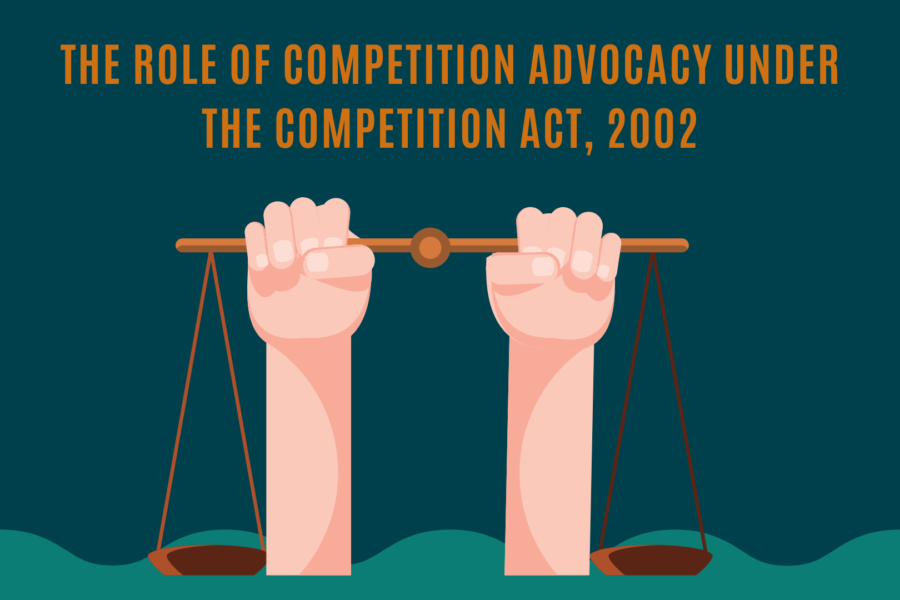In the ever-evolving landscape of business and commerce, the principles of fair competition have emerged as cornerstones of a robust and thriving economy. India, recognizing the importance of these principles, enacted the Competition Act, of 2002, a comprehensive legal framework designed to promote and sustain healthy competition within the market. Among its many facets, the concept of competition advocacy stands out as a powerful tool to foster a culture of fair play and level the playing field for all market participants.
The Genesis: Paving the way for competition Advocacy
As the Indian economy underwent a rapid transformation in the early 2000s, the need for a vigorous competition law became increasingly evident. The Competition Act, of 2002, was born out of this necessity, to prevent anti-competitive practices, promote and sustain competition, and protect the interests of consumers.
Within the legislative framework, the concept of competition advocacy found its place as a proactive measure to promote a competitive environment. Section 49 of the Act laid the foundation for the proactive approach, empowering the Competition Commission in India (CCI) to take necessary steps to promote competition advocacy and create awareness among stakeholders.
The Unfolding Journey: Unleashing the Power of Advocacy
In the year that followed, the CCI embarked on a journey to implement competition advocacy, leveraging various channels and strategies to raise awareness and foster a culture of fair competition. One of the key initiatives was the establishment of the Competition Advisory Committee, a dedicated body tasked with advising the CCI on competition advocacy efforts.
The CCI’s advocacy efforts extended beyond mere awareness campaigns, delving into the realm of policy formulation and regulatory frameworks. Through its advocacy initiatives, the commission aimed to identify and address potential barriers to competition, ensuring that policies and regulations across various sectors were aligned with the principles of fair play and market efficiency.
Case Law Spotlight :
As the CCI’s advocacy efforts gained momentum, several landmark cases emerged, each contributing to the evolving narrative of competition advocacy in India. One such case was the Builders Association of India V. Cement Manufacturers Association & others (2012), where the CCI addressed concerns over anti-competitive practices in the cement industry.
Another notable case was the Andhra Pradesh Microfinance Institutions Association v/s The Reserve Bank of India & Others (2020), where the CCI played a pivotal role in advocating for a level playing field in the microfinance sector. The commission’s advocacy efforts encouraged the Reserve Bank of India to revisit its regulations, ensuring that they did not unfairly disadvantage certain market participants.
Capacity Building and International Collaboration Competition Advocacy under the Competition Act, of 2002, Transcended mere awareness campaigns, venturing into the realm of capacity building and international collaboration. The CCI recognized the importance of equipping stakeholders, such as businesses, policymakers, and regulatory bodies, with the necessary knowledge and tools to foster a competitive environment.
To this end, the commission organized numerous training programs, workshops, and seminars, aimed at enhancing the understanding of competition law and its practical implications. These capacity-building initiatives played a crucial role in creating a well-informed and proactive ecosystem, where stakeholders could actively contribute to the promotion of fair competition.
Digital Prospective
As the world embraces the digital revolution, the landscape of competition advocacy is poised to evolve, adapting to the challenges and opportunities presented by emerging technologies and digital platforms. The CCI, recognizing the significance of this paradigm shift, has begun to explore avenues for competition advocacy in the digital realm.
Through its advocacy initiatives, the commission aims to address potential anti-competitive practices in the digital space, fostering an environment conducive to innovation while safeguarding consumer interests. This proactive approach will be crucial in ensuring that the benefits of technological advancements are equitably disturbed and that no market participant enjoys an unfair advantage.
Conclusion:
Competition advocacy under the Competition Act, of 2002, has emerged as a powerful tool in shaping India’s economic landscape, fostering a culture of fair play, and promoting a level playing field for all market participants. Through its multifaceted approach, encompassing policy formulation, regulatory reforms, capacity building, and international collaboration, the Competition Commission of India has paved the way for a more competitive and consumer-friendly market.
As the Indian economy continues to evolve and adapt to the ever-changing global landscape, the role of competition advocacy will become increasingly pivotal. By proactively addressing potential barriers to competition and embracing the digital frontier, the CCI will not only safeguard the interests of consumers but also contribute to the overall growth and development of the nation’s economic ecosystem.
The journey of competition advocacy under the Competition Act, of 2002, is a testament to India’s commitment to fostering a fair and thriving market, where innovation, efficiency, and consumer welfare reign supreme. As this journey continues, it serves as a beacon of hope for a future where fair competition is not just a goal but a reality woven into the fabric of India’s economic narrative.
Contributed by: Devesh Modi
ICFAI Law School (2022-2025)

